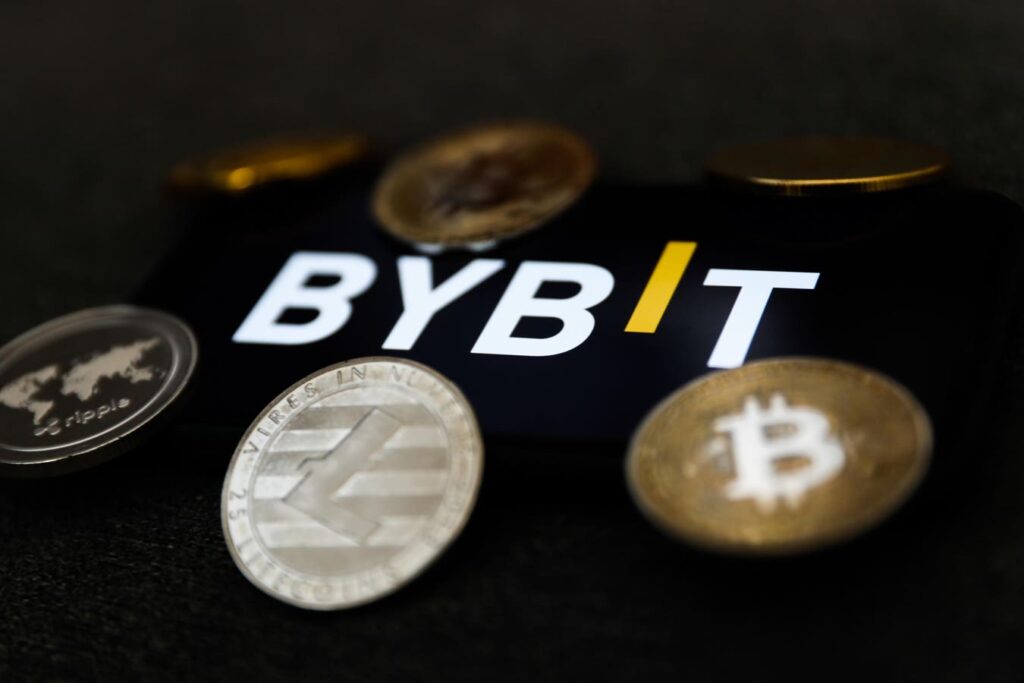Bibit Theft (pictured illustration by Jakub Porzycki/Nurphoto by Getty Images)
Nurphoto via Getty Images
Founded in 2018 by CEO Ben Zhou, BYBIT has rapidly become prominently promoted in the cryptocurrency exchange situation. Headquartered in Dubai, United Arab Emirates, BYBit offers a comprehensive suite of services including cryptocurrency trading, passive income products and the NFT market. The platform caters to customers around the world, except for jurisdictions such as the US, Mainland China and Singapore.
Unprecedented Bibit Security Breach
On February 21, 2025, BYBit experienced a serious security breaches, marking one of the biggest hacks in cryptocurrency history. The hackers infiltrated one of Bibit’s Ethereum (ETH) cold wallets, stealing about 401,347 ETH, exceeding $1.4 billion. The incident sends shockwaves throughout the digital asset industry, highlighting persistent security vulnerabilities.
This violation occurred during a routine transfer from Bybit’s ETH multi-signature cold wallet to a warm wallet. The attackers used sophisticated methods to manipulate transactions by masking the signature interface. This deception allowed unauthorized access to the wallet by displaying the correct address while modifying the underlying smart contract logic.
Further forensic analysis revealed that attackers were used to gain initial access to internal credentials using advanced phishing techniques and social engineering to bypass security protocols. Once inside the system, they exploited the vulnerability in Bibit’s multi-signature authentication process, generating fraudulent approvals that allowed the asset to be transferred without immediately raising a red flag.
Emerging analysis suggests that North Korean state-sponsored hackers, particularly the Lazarus group, may be responsible for the attack. Blockchain investigator ZACHXBT and security researchers have identified patterns that match previous Lazarus Group operations, including similarities to the January 2025 PHEMEX Exchange Hack.
These findings are supported by Crypto Analytics company Arkham, who awarded Zachxbt a $50,000 prize money to link Bibit Hack to the Lazarus Group. If the group is confirmed to be involved in the Bibit incident, it will position North Korea as one of ETH’s biggest holders, surpassing the holdings by Ethereum co-founders Vitalik Buterin and the Ethereum Foundation. The funds acquired through these activities are believed to fund North Korea’s nuclear weapons programme.
Blockchain analysis has made direct recovery more difficult by tracking stolen ETH through multiple obfuscation layers, including decentralized exchanges and privacy-enhancing protocols. Despite these complexities, Bibit has tried to quickly tackle cybersecurity companies and law enforcement, tracking funding moves and negotiating an asset recovery.
In response, Bybit’s security team has launched a comprehensive investigation, working with forensic experts from major blockchains. CEO Ben Zhou has assuranced users that all other cold wallets are safe and that client funds are safe. He emphasized that the platform’s operation continues without disruption and that Bybit has secured bridge loans to compensate for outstanding assets. BYBIT has secured bridge loans to cover about 80% of stolen ETH, and works closely with law enforcement to investigate violations and collect assets.
Market impact of Buybit Hack and industry response
The size of this hack has rekindled discussions about the security of digital asset platforms. In 2024 alone, the cryptocurrency sector witnessed $2.2 billion in stolen funds, an increase of 21.1% from the previous year. This trend highlights the escalating challenges we face in protecting assets against increasingly sophisticated cyber threats.
With each chain melting, in 2024 alone, the cryptocurrency sector witnessed $2.2 billion in stolen funds. …(+)
Chain Analysis
Following the violation, Bybit confirmed that some users are active in withdrawals, although delays could occur due to network congestion. Approximately 70% of withdrawal requests have been successfully processed, and efforts are underway to address the remaining backlog.
Regulatory environment and compliance initiatives
Beyond security concerns, BYBIT navigates complex regulatory environments across a variety of jurisdictions. Regulation and innovation are the well-balanced actions that many countries have been working on in 2024.
In France, after more than two years of involvement with the Autorité Des Marchés Financiers (AMF), Bybit was officially removed from the AMF blacklist in February 2025. This milestone reflects exchange commitments to compliance and intention to secure a crypto market. Asset (MICA) licenses promote operations across the European Union.
Ben Zhou posted to X in February 2025 that Bybit was officially removed from the AMF blacklist.
Posted by X Ben Zhou
Conversely, in India, BYBIT faced challenges that led to its service outage in January 2025. The Financial Information Unit (FIU) has imposed a fine of approximately $1.06 million for breach of the Money Laundering Act. BYBIT is actively working to address these issues and aims to historically implement operations in conjunction with local regulations.
Bibit’s applause for crisis management
Bibit’s crisis management following historic security breaches was exemplary, setting benchmarks for transparency and control. CEO Ben Zhou immediately owned the situation and addressed the community within 30 minutes to confirm that Bybit is the primary source.
The company has followed up with fast, clear updates, including live streams that provide real-time responses and peace of mind. Bibit provided concrete numbers and timelines to maintain calm under pressure, maintain effectively managed communication flows through structured live sessions, and instill trust.
They also took responsibility for the security course without being responsible, leveraging industry support to enhance reliability and ensured financial stability for users. Bybit’s rapid, transparent, strategic response eased panic and stabilized the market.
As Casey Taylor commented on X, “Bybit has just delivered a masterclass in crisis communication after experiencing the biggest hack in cryptography history.”
Where will this go for bibit and cryptography?
Recent events surrounding Bybit highlight the multifaceted challenges cryptocurrency exchanges encounter, from ensuring multifaceted security measures to navigating diverse regulatory environments.
As the digital asset industry continues to evolve, the experience of platforms like BYBIT will be engaging in ongoing innovation, stringent security protocols, and proactive regulatory compliance to promote trust and resilience in the global cryptocurrency ecosystem. It emphasizes the order.



